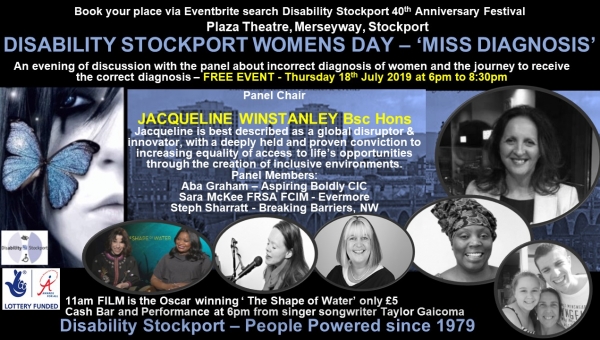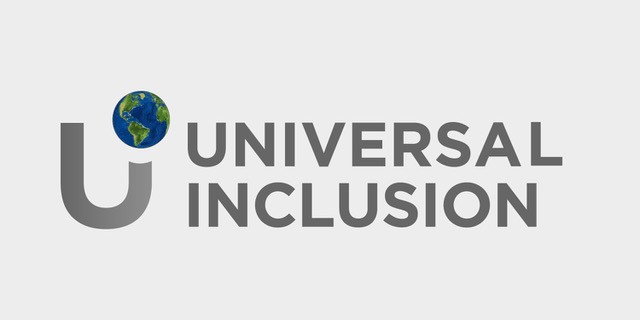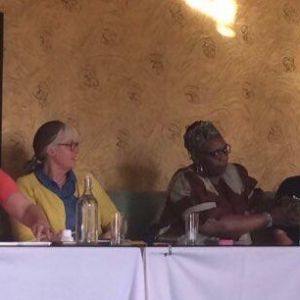 ‘Miss Diagnosis’ – Disability Stockport 40th Anniversary Festival
‘Miss Diagnosis’ – Disability Stockport 40th Anniversary Festival
Thursday 18th July 2019 held at the Plaza Theatre Green Room
An evening of discussion about incorrect diagnosis of women and the journey to receive the correct diagnosis.
I was honoured to be asked to chair a panel discussion alongside other global disrupters. It was a brilliant yet emotional event.
Thank you to Carol Ann - Disability Stockport @DisabilitySK, Sara McKee FRSA FCIM - Evermore Founder @SaraMcKeeFRSA, Aba Graham - Director Aspiring Boldly Associates CIC @aspiringboldly and Steph Sherratt - Project Manager at Breaking Barriers @BarriersNW for joining me on the panel.
Great venue @StockportPlaza1, perfect for a confirmed afternoon tea addict like myself.
Women in general put the health and wellbeing of their children and partner first, and when they do visit a health professional there is a good reason for it.
There is a high incidence of misdiagnosis within the general population, but it is not disaggregated in terms of gender.
The most common areas of misdiagnosis in women are heart attacks, fibromyalgia strokes, endometriosis, lupus and MS.
Women cite three main reasons why they feel they are misdiagnosed:
- There is not enough clinical research or subsequent treatment or advice on gender difference in health conditions,
- they feel health professionals don’t listen to them or take them seriously
- or else they think they are complaining about insignificant conditions.
Other factors which can influence misdiagnosis are fear within health professionals about repercussions as a result of getting it wrong.
In the UK, the only avenue for redress and acquiring any resultant support is via legal action - unlike for instance New Zealand, where if things do go wrong, the state puts everything that is needed because of it in place, eliminating the need for litigation and leading to a much more open and transparent system.
There is also a genuine desire to reach the right diagnosis, as symptoms of different health conditions can mirror each other.
As part of setting the scene, I shared a poem I wrote for the occasion titled ‘Misdiagnosis’
Panel members all echoed that a key factor was not being listened to at the point that their instinct, - many a time, over and over again - was telling them something was seriously wrong.
I posed three questions to the panel:
- A brief summary of their journey/experience to time of diagnosis
- How it impacted them in their day-to-day lives (at work, at home and socially)
- Then a broader discussion on what would have made it easier, including the key areas where they felt should improve in order for them to get early and accurate diagnosis and treatments.
The key elements to come out of the Panel include:
- A feeling of hopelessness; not having their belief that there was something wrong taken seriously enough.
- Horrific, often life-changing results, following misdiagnosis on top of the impact of developing a medical condition - which is traumatic enough to start with.
- Massive negative impact in the workplace - in all cases it resulted in losing the job they had been good at; all echoed an experience where they were no longer seen as valuable.
Furthermore
- All emphasised the lack of relevant information and treatments that suited their individual pathway and circumstances at crucial points in their diagnosis.
- All cited lack of support to remain in work, and where there was support, the criteria to access it was conflicting and could be removed at the drop of a hat particularly if self-employed.
- All echoed a negative impact in their home and social lives as they struggled to function and access services they needed following the onset of their diagnosis.
- The delivery method and approach was seen to be critical in improving women’s experience at the point of diagnosis i.e. having to access support via a call centre and artificial intelligence or recoded message pointing you to the terminally ill department etc.
- Women need the right information at the right time.
- All shared experiences of social isolation, as important people in their lives reacted to their diagnosis alongside often cruel and hurtful responses to the presenting symptoms from those around them.
- All reported having key people, friends and colleagues who had stepped up along the way who had helped them keep it together.
- All spoke of a loss of the person they were, but gave powerful tributes to who they have become and what they are achieving alongside dealing with the harsh and often relentless reality of life with a disability.
Comments from our panel speakers:
Sara McKee FRSA FCIM - Founder, Evermore @SaraMcKeeFRSA,
“Lobby - Parity of physical health and mental health. Need to be government backed”
Aba Graham - Director, Aspiring Boldly Associates CIC @aspiringboldly
“Trying to manage memory loss and hearing. Workplace needs to recognise it and support. If it’s invisible it’s ten times harder. Look at how they treat people”
Steph Sherratt - Project Manager, Breaking Barriers @BarriersNW
“Creativity. Stop creating boxes and putting people in boxes..The creativity and talent come from the differences”
In conclusion, the following are required to improve women’s experiences and reduce misdiagnosis:
- Clinical research into the gender difference within medical conditions.
- Treatments which reflect those differences.
- Timely and easy access to support within the workplace, home and social lives of women who are diagnosed and have to live with their diagnosis, including life-limiting ones which kick in automatically and do not have conflicting criteria and/or sanctions.
- Women want the right information at the right time, delivered in a respectful and compassionate way.
- They want a voice and their instinct about their own health to be taken more seriously.
- Women want changes in Health Insurance schemes particularly around mental health, ideally with a move towards systems like that in New Zealand to eradicate some of the underlying areas of malpractice which impact on misdiagnosis.
- Women want this to be the start of a conversation and a platform for change in what has to be fair: the current system was developed predominantly by men, based on male experience of presenting symptoms and resultant treatments.
- Create a Paradigm Shift in respect of health inequalities.
We now look forward to continuing the debate.
July 2019. Jacqueline Winstanley - Founder & CEO Universal Inclusion @univinclusion
Acknowledgment with thanks to Disability Stockport @DisabilitySK, and The Zebra Partnership @Zebra_carol


